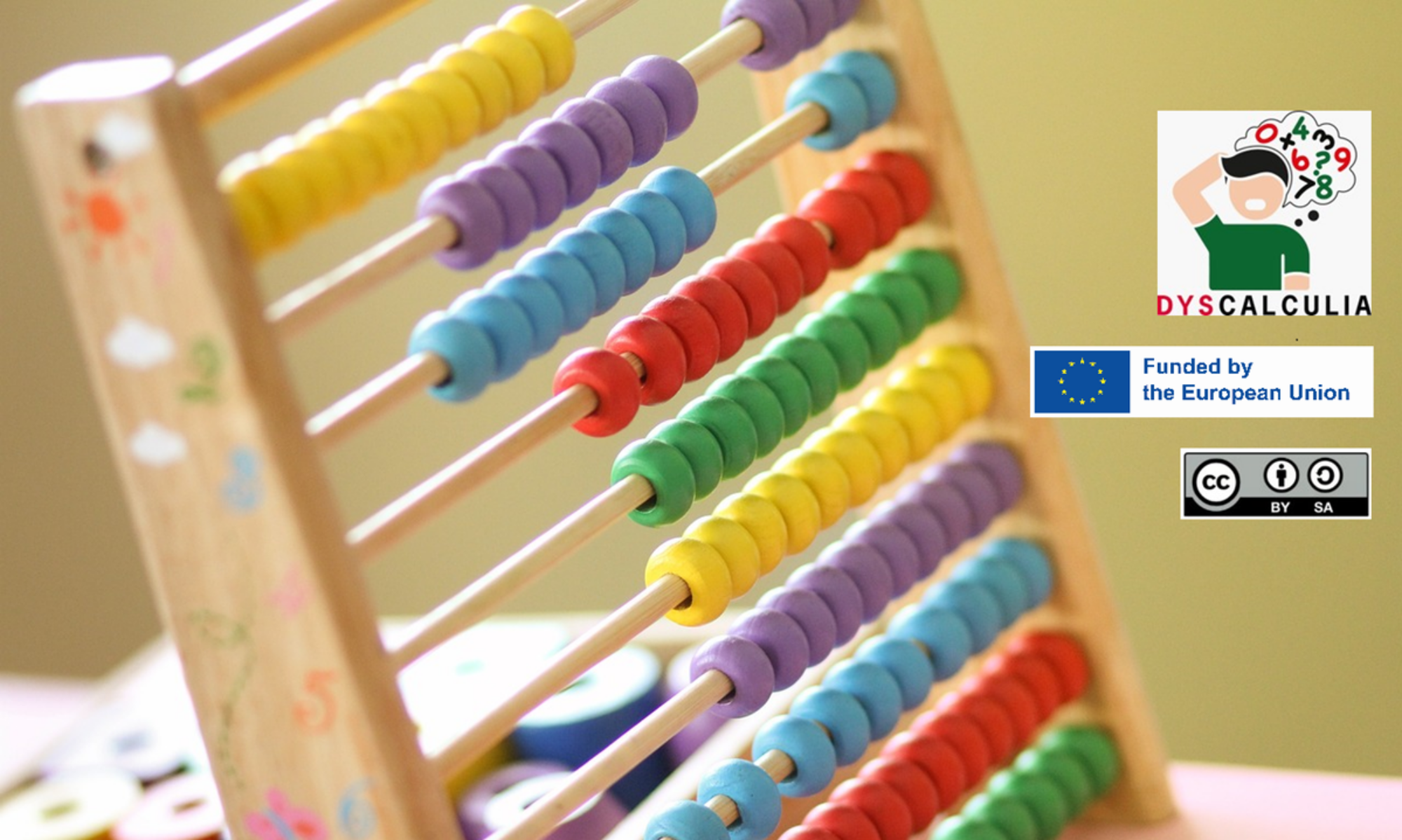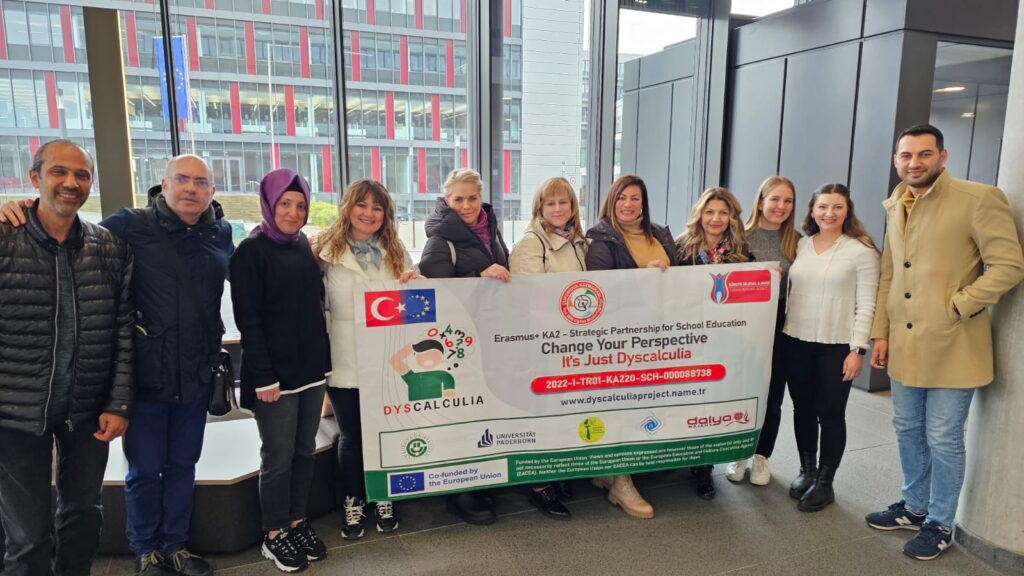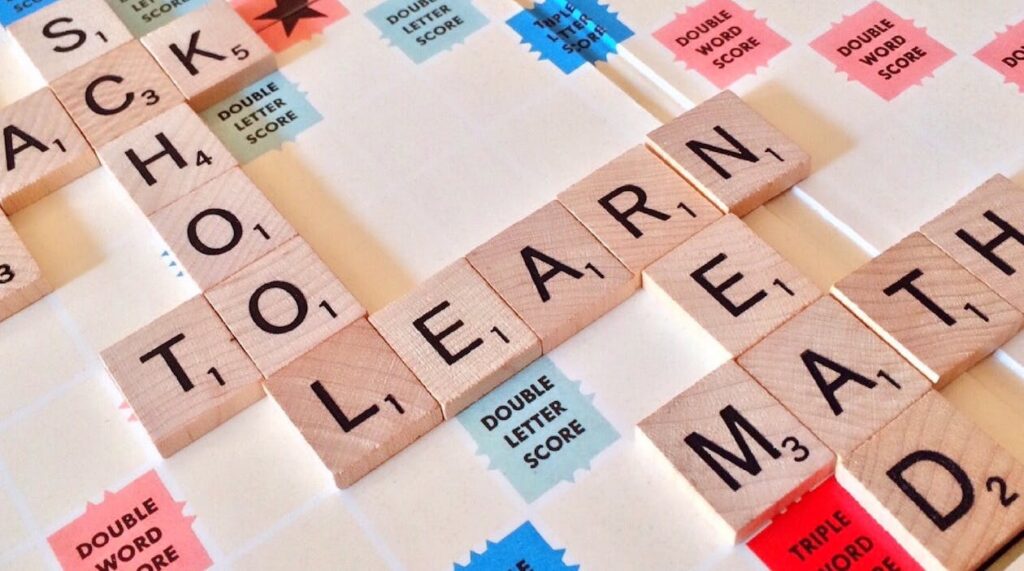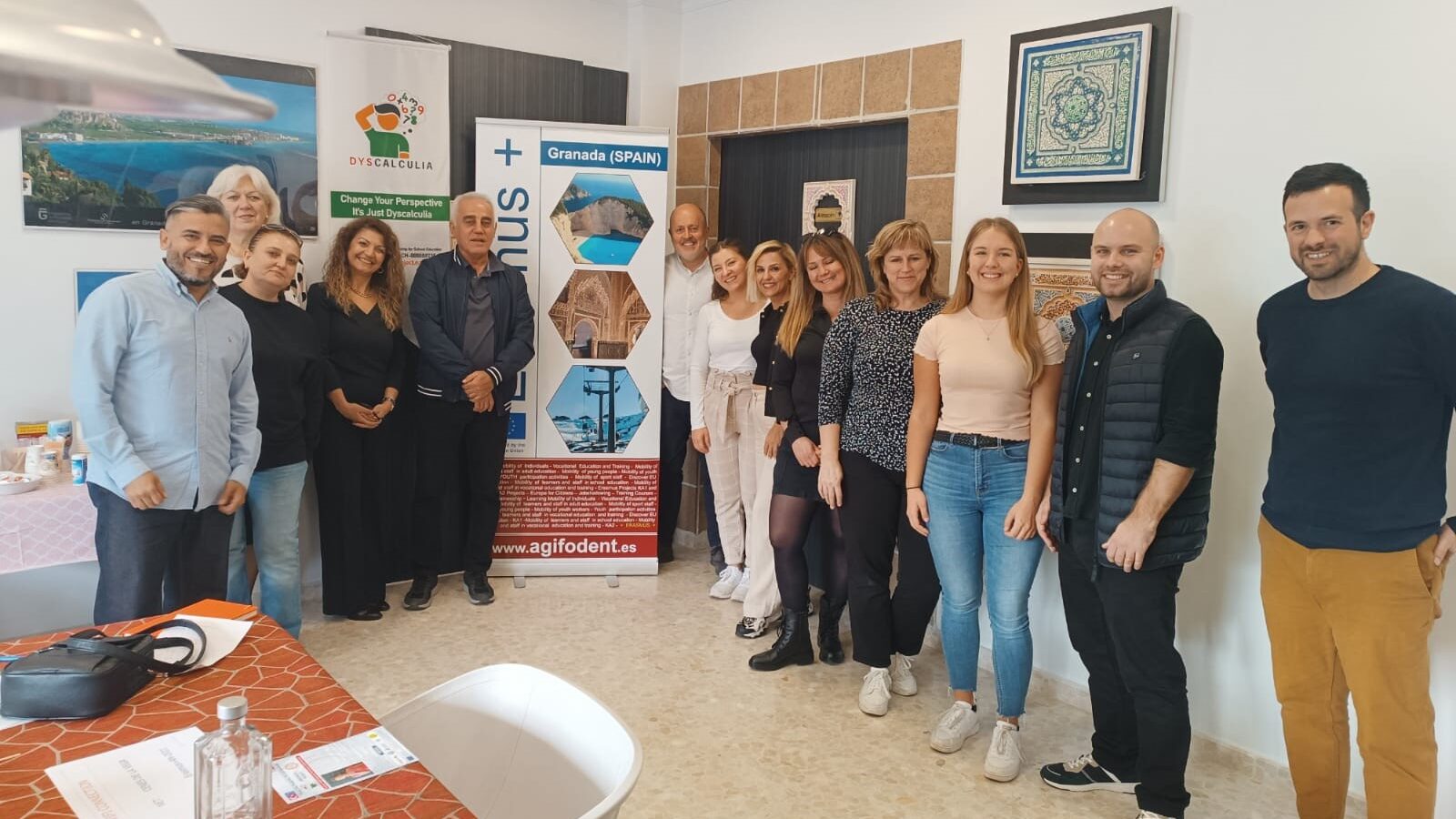The partners of Dyscalculia have created a short video about Dyscalculia in Europe!
Check it out ⬇️

Ref. No. 2022-1-TR01-KA220-SCH-000088738
The partners of Dyscalculia have created a short video about Dyscalculia in Europe!
Check it out ⬇️
Teachers should adapt their lessons not only to the learning content but above all to the individual needs of the learners. The learners‘ needs are very individual and different, as each learner brings different prior knowledge, learning requirements, motivation, daily form, etc. to the classroom. Learners also bring learning disorders with them, such as dyscalculia. Teachers need knowledge, appropriate awareness and essential skills to effectively treat children with dyscalculia in school to provide them with high-quality teaching. The key competences of a teacher for dyscalculic learners are crucial for learning success in maths lessons.
Key competences: facilitation, responsibility, reflection, support, feedback
From the 11th to the 15th of March, the partners of the Eramsus+ project “Change Your Perspective: It´s Just Dyscalculia” had an LTTA2 at the partners of Paderborn University in Paderborn, Germany.

The meeting focussed on e-learning and videos as part of e-learning in school. The
partners are familiar with e-learning and the creation of learning videos. They created
videos of the Dyscalculia project, its meaning in Europe and in every partner country.
The project partners worked on the second work package and discussed further tasks
within the project. The next meeting, which will be the third LTTA, will be held in Lithuania.
Overall, it was a successful week and the partners are excited for the next phase!
The partners are looking forward to the upcoming Learning Teaching Training Activity at University Paderborn in Paderborn, Germany.
In this activity, the partners are going to focus on e-learning and videos as part of e-learning in classroom environments in secondary schools. They are going to find great solutions of e-learning and video elements to support students with learning disabilities such as dyscalculia. Stay tuned 🚀

In the age of technology, assistive tools are revolutionizing the learning journey for individuals with dyscalculia. These specialized aids are like guiding stars, illuminating the path to mathematical proficiency. From digital calculators to math-focused apps, assistive technology levels the playing field, ensuring equal access to mathematical education and skills development. By embracing these tools, this project empowers individuals with dyscalculia to harness their full potential and overcome numerical challenges. Technology isn’t just a tool; it’s a bridge to a brighter educational future.

Education policy plays an important role in shaping the future of inclusive learning environments. When it comes to students with learning disabilities like dyscalculia, discussions are essential. These conversations revolve around the development and implementation of inclusive education policies that provide equal opportunities for all learners. By prioritizing support and accommodations tailored to individual needs, this project creates an educational landscape where every student can grow. These policies not only promote academic success but also foster a society that values diversity and ensures that no one is left behind in their pursuit of knowledge.

Christmas is a time of giving. But what do you give a child with dyscalculia? Dyslexia UK has thought about this and here you can find their ideas for 12 great gifts that are not only fun but also encourage learning: https://www.dyslexiauk.co.uk/top-12-christmas-presents-for-a-child-with-dyslexia-or-dyscalculia/

During the training, participants were introduced to the special features of dyscalculia. Together, they worked on a definition, challenges and opportunities. They also discussed what role dyscalculia plays in secondary education, both for learners and teachers. Here too, they discussed the challenges and opportunities in the classroom. In addition, examples of games were played that can also be used in the classroom to support learners with learning difficulties. All in all, it was a successful training, which led to results that can be used in the respective partner countries.
Coping with dyscalculia often extends beyond mathematical challenges, impacting an individual’s psychological well-being. Frustration, anxiety, and self-doubt can take a toll. This highlights the importance of holistic support, not only in addressing math difficulties but also in promoting mental health awareness. By fostering a nurturing environment that recognizes the emotional impact of dyscalculia, the project empowers individuals to seek the help they need. Through understanding and support, the consortium can help them build resilience and self-esteem, enabling them to navigate both the mathematical and emotional aspects of their educational journey.
Dyscalculia’s influence on academic performance cannot be underestimated. For those dealing with this math learning disability, traditional approaches may not suffice. That’s why tailored educational strategies and accommodations are essential. By recognizing individual needs and adapting teaching methods, this project can help bridge the gap in mathematical understanding. This not only improves academic performance but also fosters a sense of achievement and self-confidence. In acknowledging the unique challenges posed by dyscalculia, we pave the way for more inclusive and effective educational experiences.
